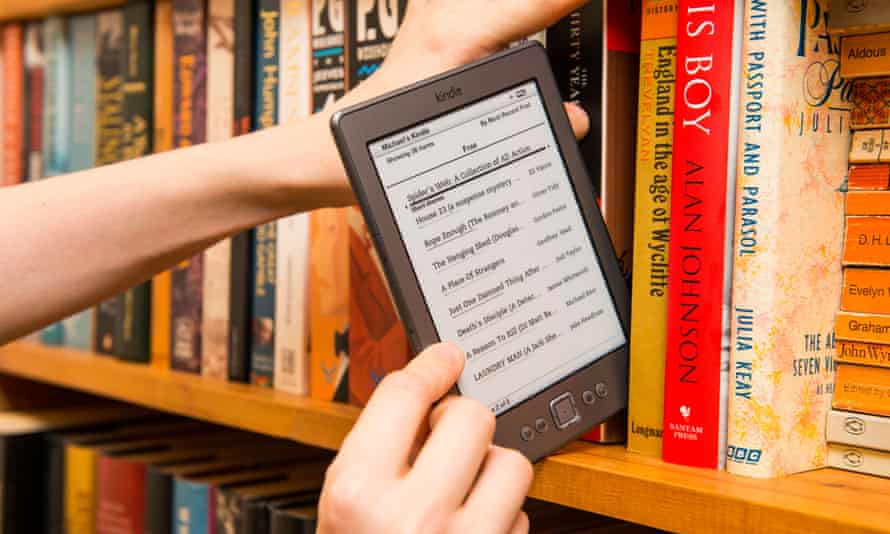Today I was reading someone’s criticism of the modern-day dystopian novel genre, about how many dystopian novels (especially in the Young Adult (YA) subgenre, represented by books like the Hunger Games and Divergent (the first praised by the author for its real criticism and understanding of the subject matter it was critiquing, while the second was the focus of their criticism)) seemed to almost follow a formula and how many seemed strangely made for the screen, having somewhat confused themselves with enticing storylines of adventure and drama that are so easily transferred to the silver screen, happily marketable, able to “criticise” the ills of the world—and particularly, capitalism—while being a bit too comfortably promoted by capitalistic ventures.
And it got me thinking. The very first thing it had me thinking was this exact phrase: “Is the future of dystopian novels dystopian?”
Second, it got me thinking about books that I had read in the genre (being a Muse fan, dystopia is mildly on my radar I would say), and I realised that I’ve never, ever thought of a book like 1984 and a book like Ready Player One to be of the same genre, even though they both technically would present themselves as dystopian novels. One is meant to give you a rush of thrill and make you go, “whoa, cool!” and basically make you want to live in what the author will otherwise take the pains to say is a world you don’t want to be living in. (Please bear with me while I stack the two books side by side… as ridiculous as that may sound to some of you!)
Both are books set in the near future. 1984, written in 1949 and set in the titular 1984; Ready Player One, written in 2011 (I had to google that and it surprised me… I thought it’d be written around 2015. Ernest Cline was early to the 80s nostalgia trend!), set in 2045. Both imagine some forms of technology that didn’t exist at the time (or wasn’t overtly used in the manner that the book shows)—in Ready Player One, it’s VR technology, in 1984 it’s mostly surveillance technology.
But the difference is in how these new technologies are used—Orwell makes the most mundane use of ordinary technology: two-way screens, mics, tubes, whatnot. As small as these might be, they were in a way physical manifestations of what was wrong. (Why? Because they existed in some form already, and that’s not how we saw them being used.) We had TV screens, mics had been invented, pneumatic tubes? Heard of them. But we weren’t used to seeing them used like this: these (relatively) ubiquitous things we considered harmless, screens watching us instead of us watching them, mics listening to us, pneumatic tubes destroying the undeniable truth as we knew it—as much as it was just a build up for the idea of people controlling us, of people listening, watching, denying, the technology was an important symbol representing and amplifying the book’s ideas. It was chilling. It’s what made the contrasting notebook of paper and ink seem so… free. Rebellious. Because in a world where the ordinary seems to have turned against you, it was the ordinary that also came to the rescue. Now what does Ready Player One do with its props?
The setting is futuristic as you’d see futuristic from a 2010s view. It’s VR, internet, fantasy, it sounds like a good world. (One thing though, yes we’ve seen VR headsets, but they’re not as ubiquitous, are they? It doesn’t chill you the way the items used in 1984 do, because we don’t yet see them as harmless everyday objects. It’s a bit unrelatable, so it’s not as effective. It comes off as more fantastical.) Yes, Cline is using the too-good-to-be-true contrast here: inside the Oasis, it’s wonderful! It’s fulfilling! You have friends, money, hope, luxury, life! Step outside though, and for most people it’s trailers stacked on top of each other, it’s poverty, theft, arson even. But you don’t live in that world very often do you? Read the book, and you’re always in the Oasis. Cline (in my opinion) got a bit carried away with the 80s nostalgia. Corporate henchmen blinded by greed and advertising options, which is probably the realest part of the whole book (and might I add, corporate henchmen who remind me of Pokémon’s Team Plasma) in the most glamorous version of the world? Can’t shake me that much, I’m too busy wondering how the heck that boy can game for 23 hours without his head swimming. Just writing this post is making me think I should get up and stretch now or something.
Ready Player One focuses less on the chilling, more on the thrilling. I mean, it could’ve done a lot better given the time it was written was around when we were beginning to have our net neutrality battles, but it never got around to showing us any consequences. Too much threat of “don’t you dare” and no realisation in anyway of what could go wrong and why we should hate it. The worst the book did was have a gun-slinging action chase scene. He could have shown a world without net neutrality beyond just the money-muscle-flexing of “we bought better VR headsets”, it was a real threat to many people and could have struck a stronger chord. To me, Cline got carried away and mixed up his messages. It ended up becoming more about self-acceptance towards the end, and focussed a lot on the “weren’t the 80s a party, I wish I were around in the 1980s”.
Bottom line, the big difference between 1984 and Ready Player One, two novels that bill themselves as dystopian future novels? One chills, the other thrills.
What do you think? On the one hand, perhaps it’s only a product of changing times. Maybe people reading 1984 in the ’50s could have thought it quite odd that everyone might have a TV screen, and that it could watch you—novel! Perhaps VR today stands at the same place, chronistically (is that a word? The opposite of anachronistically?), as a television screen would have stood in the 1950s—about three decades after its invention. To me however, Ready Player One missing its mark has less to do with the technological premises it employs, but the fact that it employs them too much. Cline spends so much time in the VR world, he doesn’t actually address the “real” world’s circumstances beyond “this boy lives in a stacked up trailer and comes from a dysfunctional family”. He gets too caught up in 80s nostalgia, and makes more threats than actually show why the evil-guy corporation’s implementation of this freemium model is a bad idea. This book was written around the time our conversations about net neutrality were popping up, so the book could have done much more. Ultimately, it’s more about nostalgic comfort (reinforced by the fact that the future is “bad”), more about thrill than chill, as a dystopian novel should leave you feeling.
But let me know what you think in the comments! (Or don’t, you’ve probably spent a while reading this. Treat yourself to a glass of water. Or an ice-cream bar. It’s summer, folks!)



